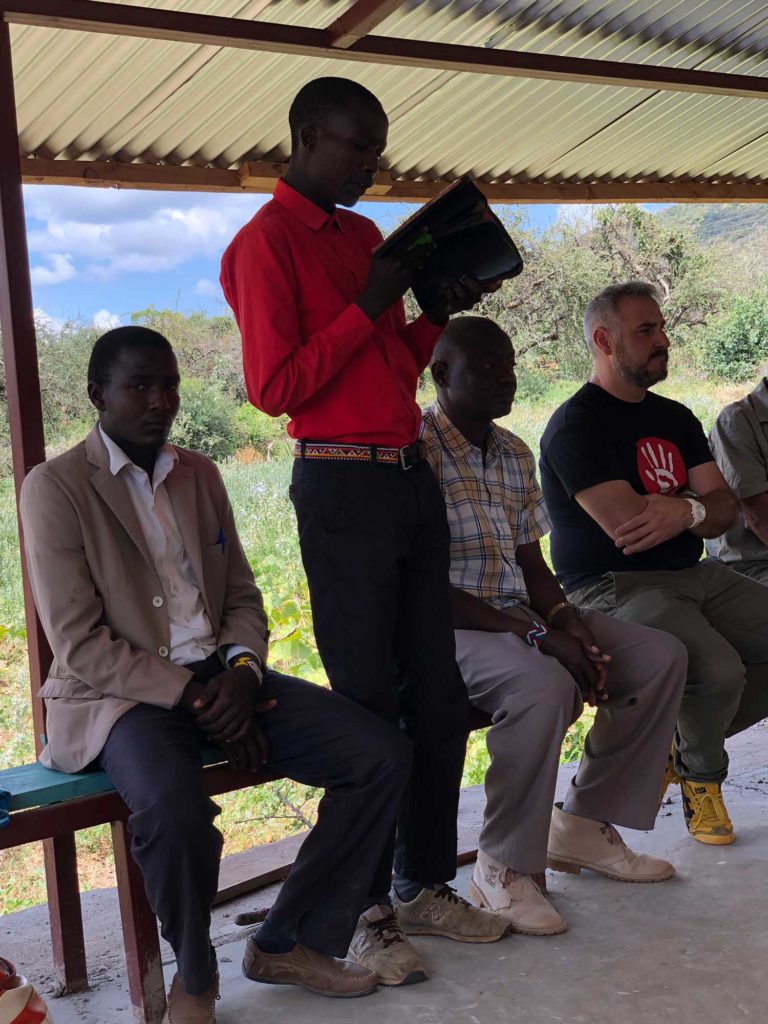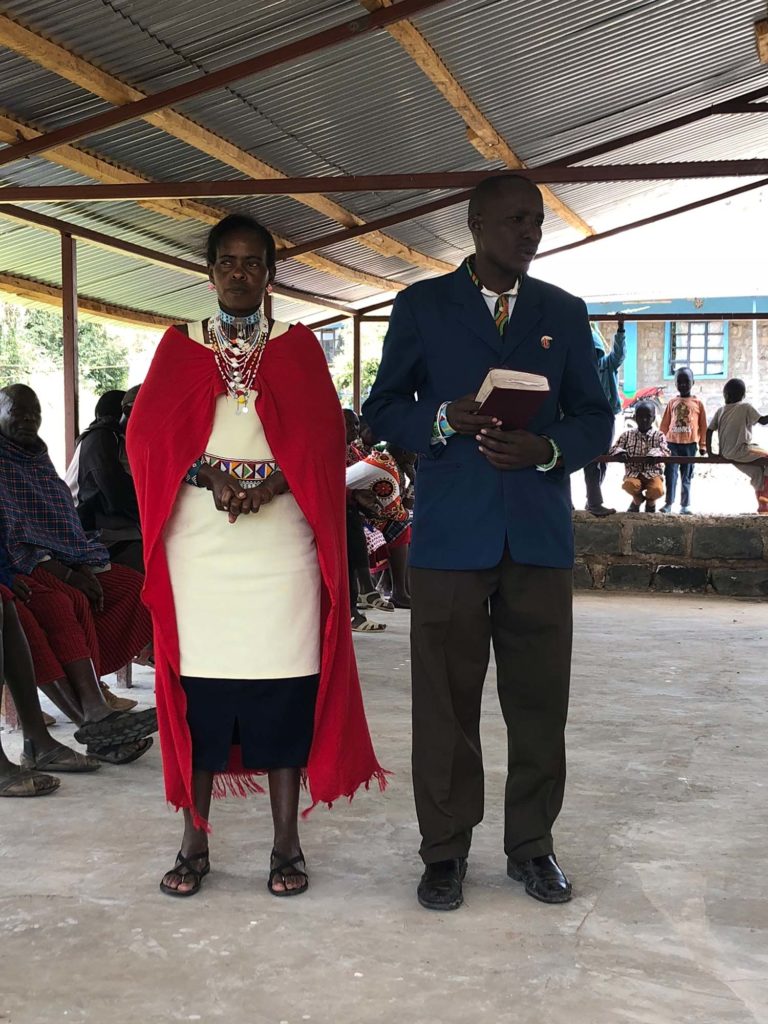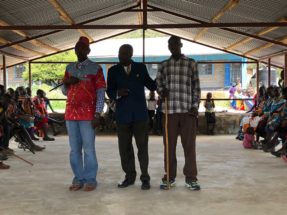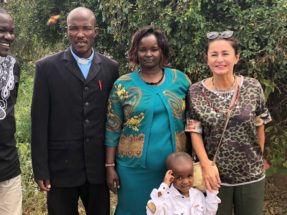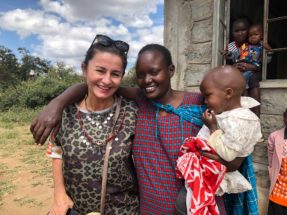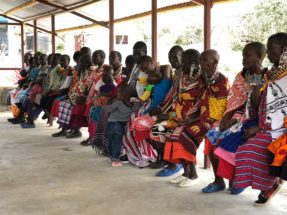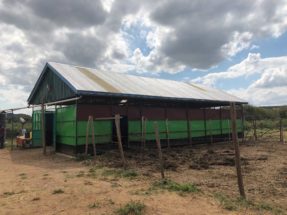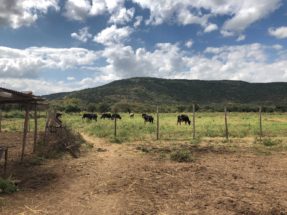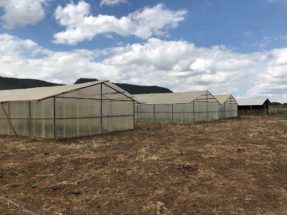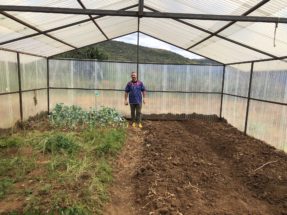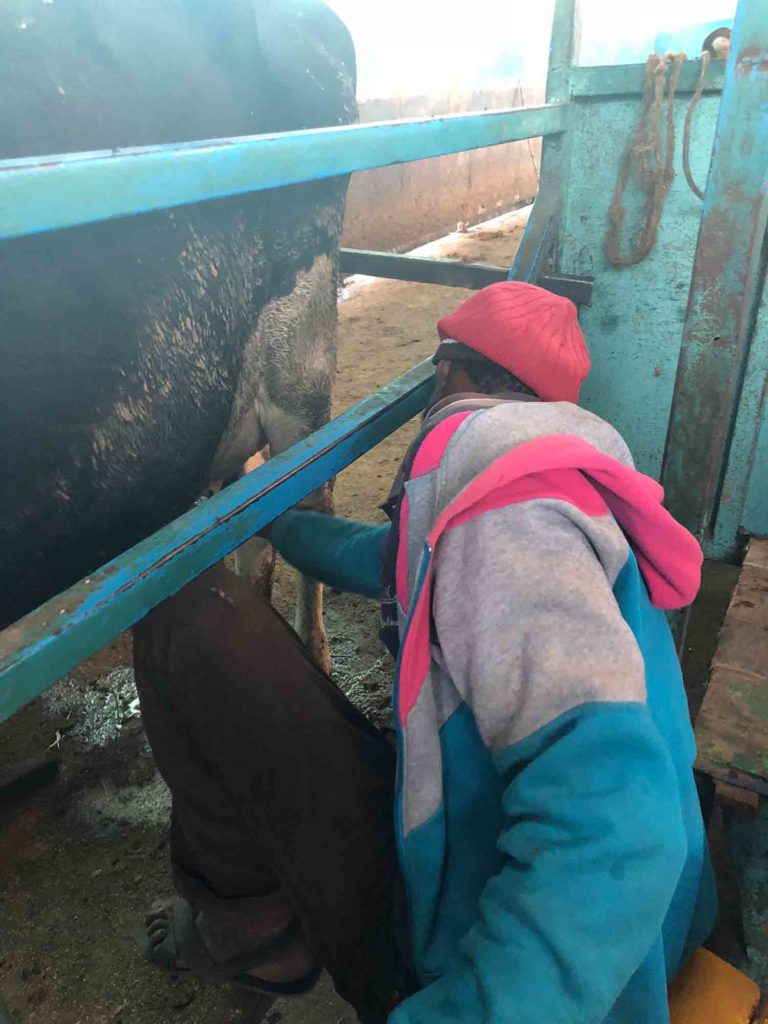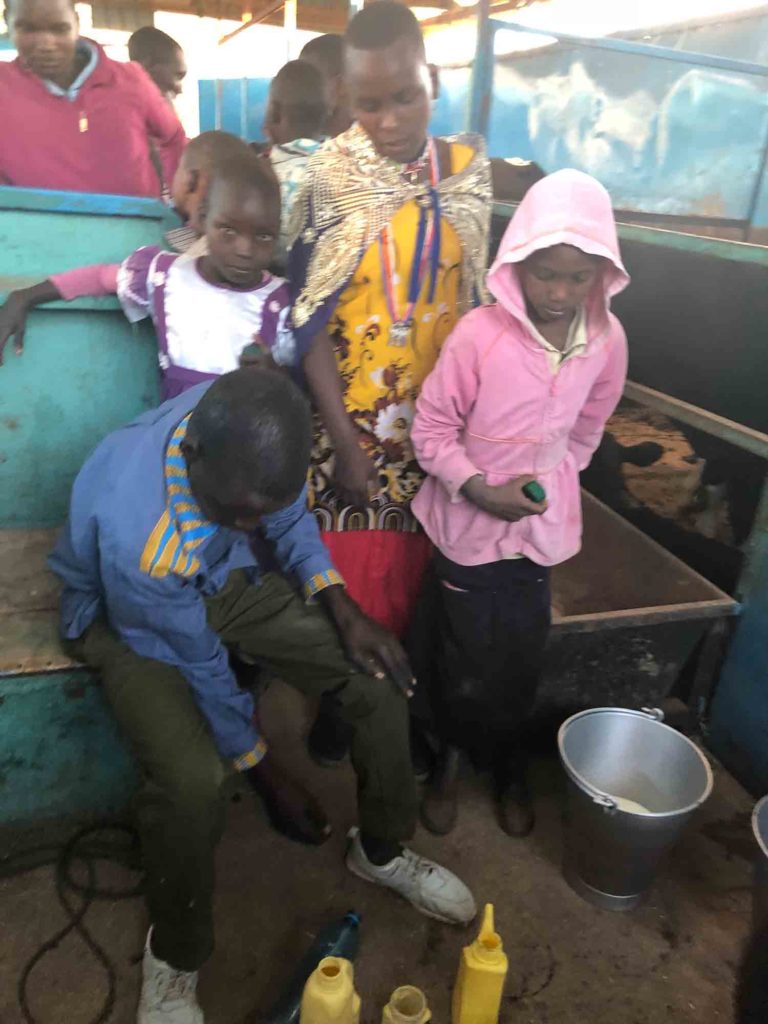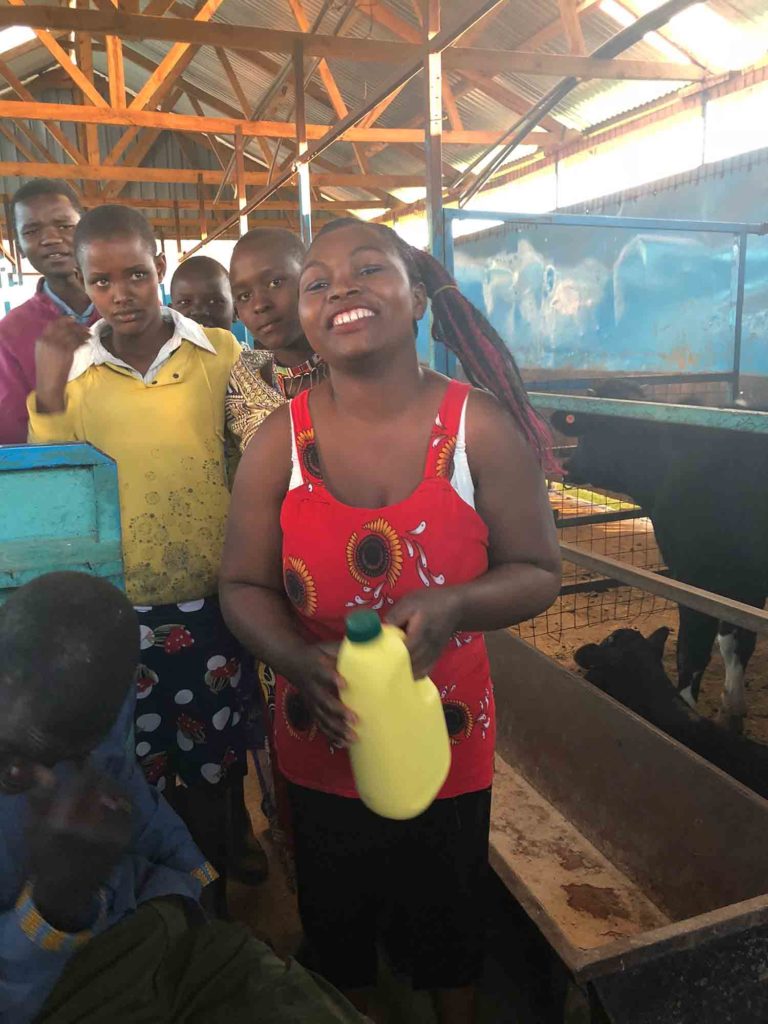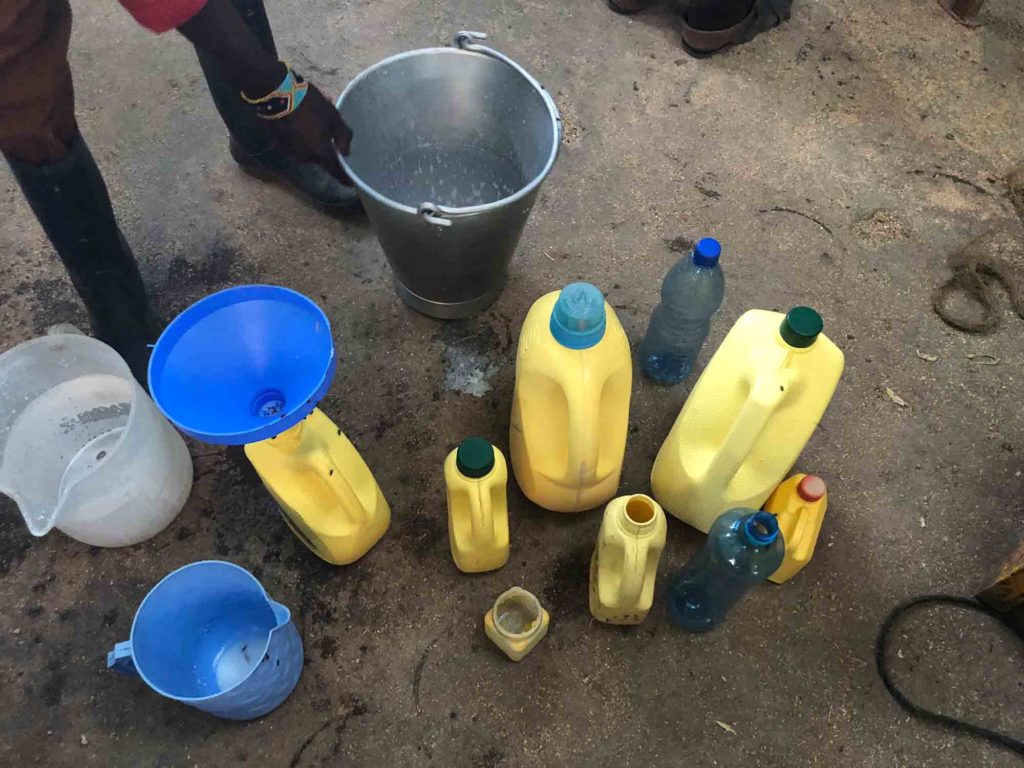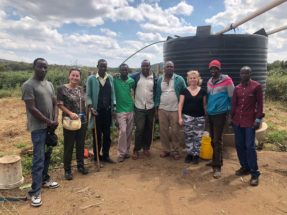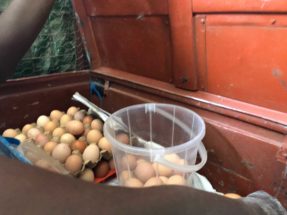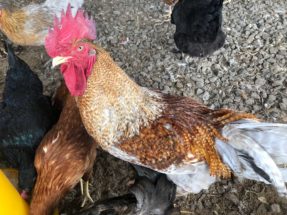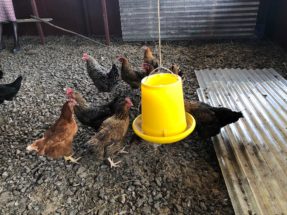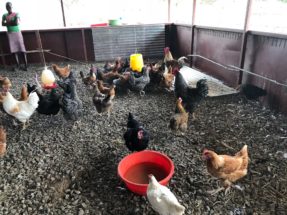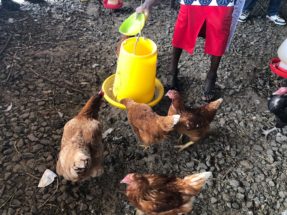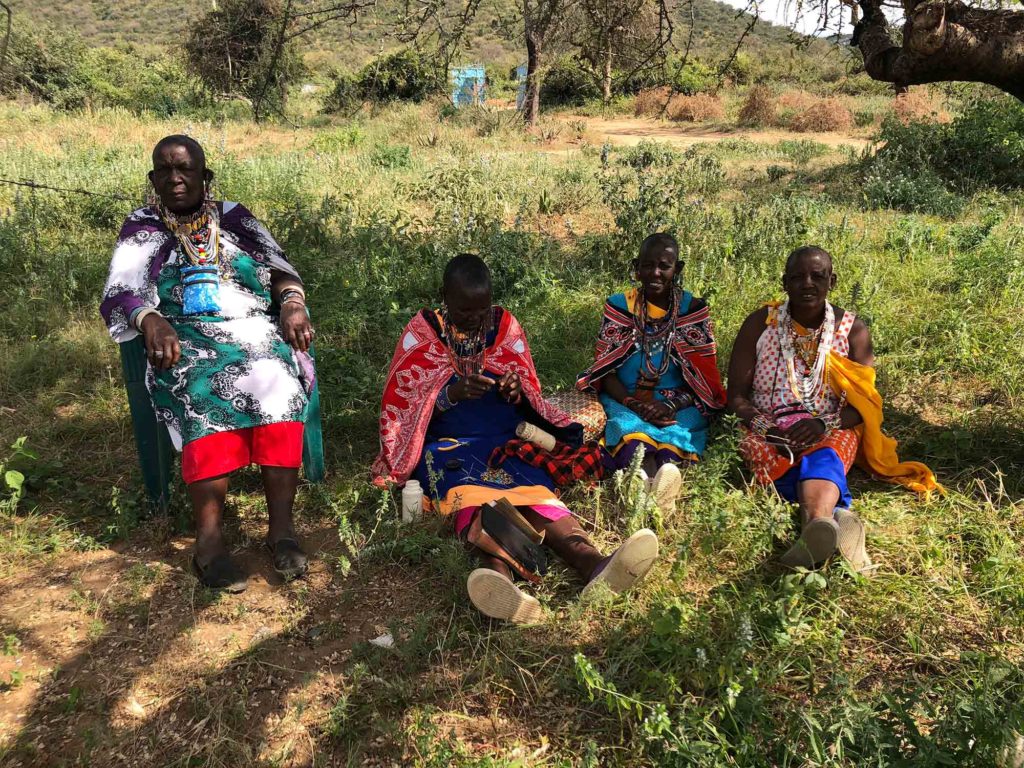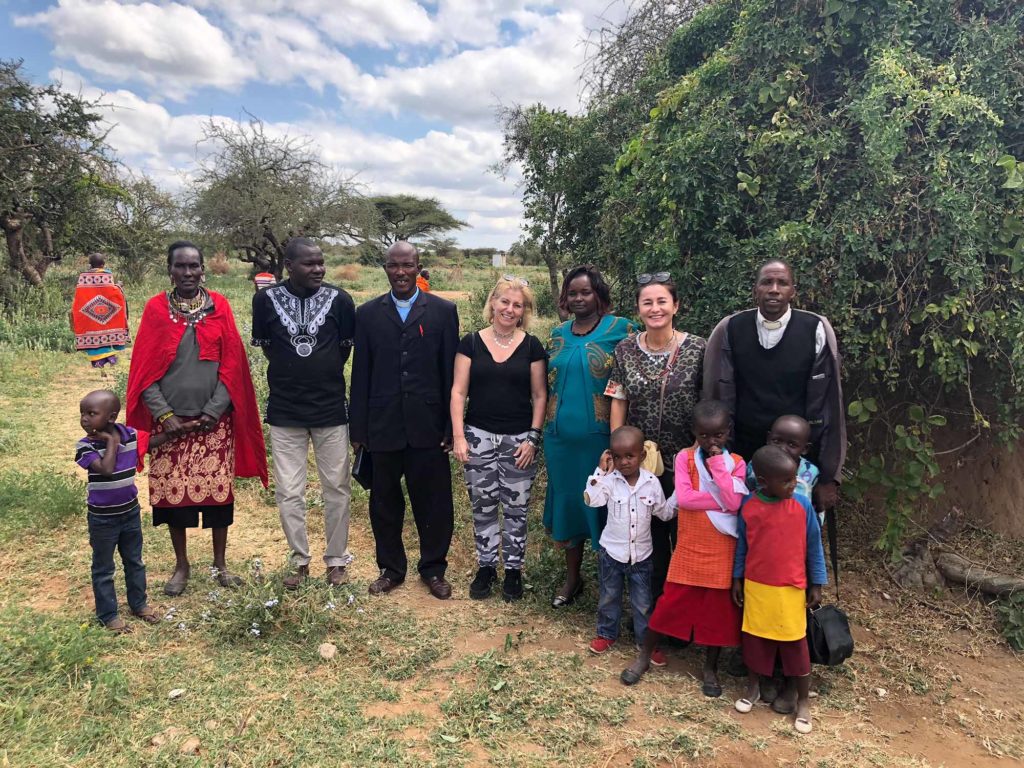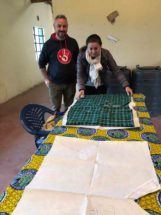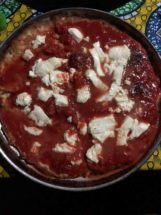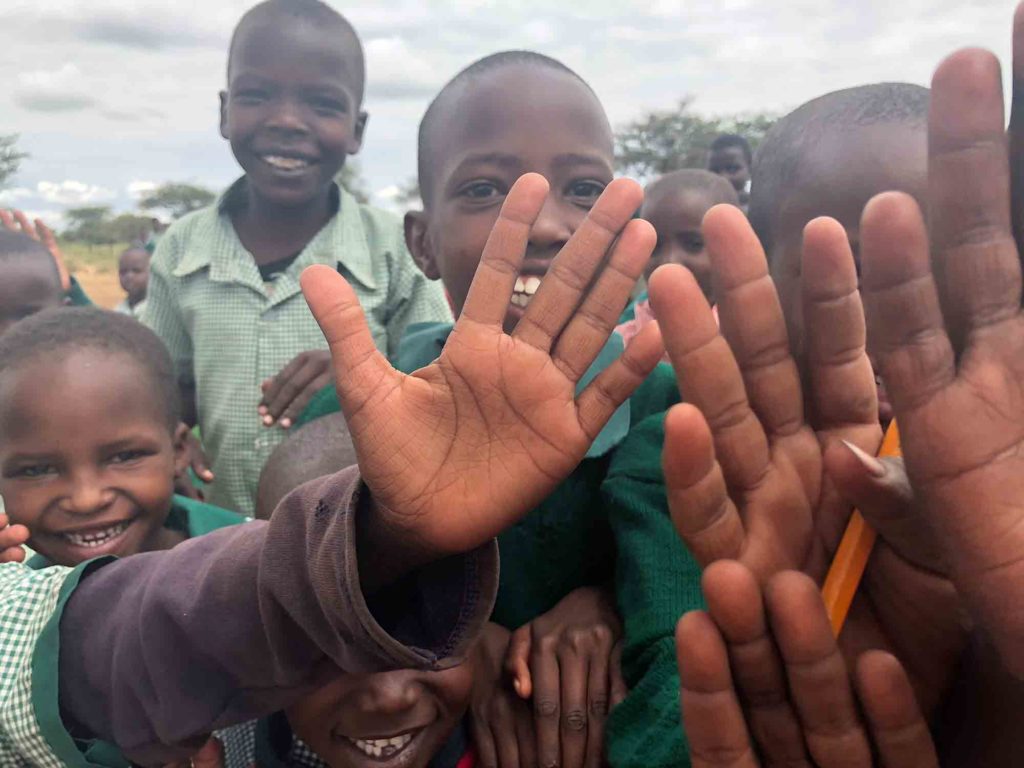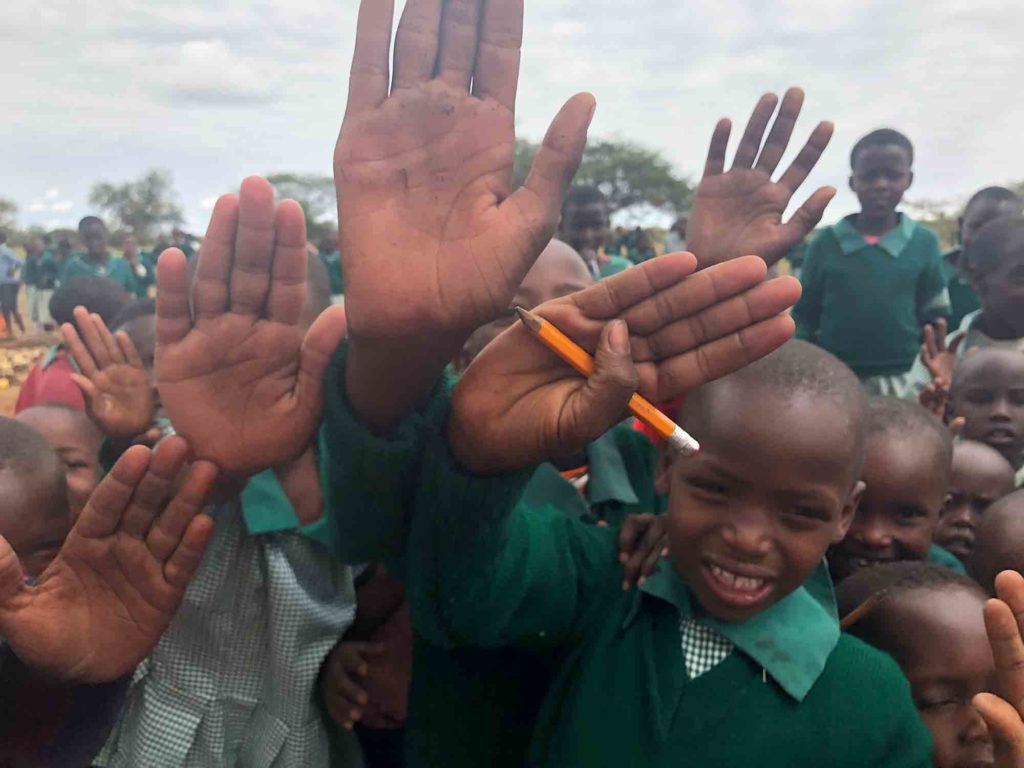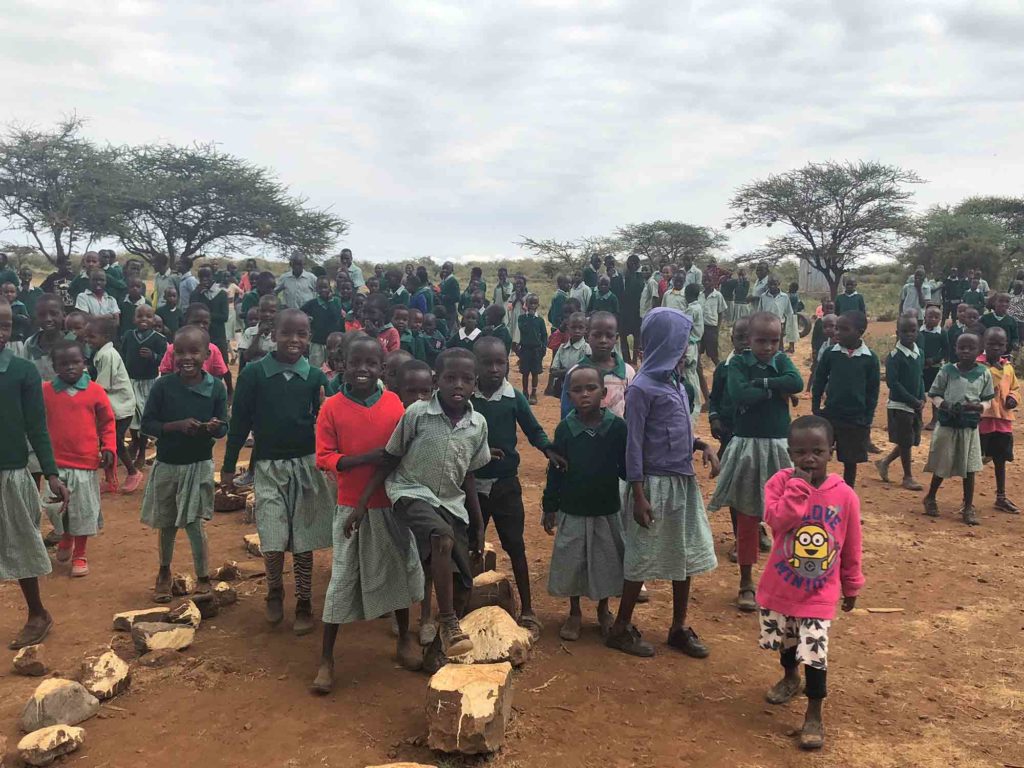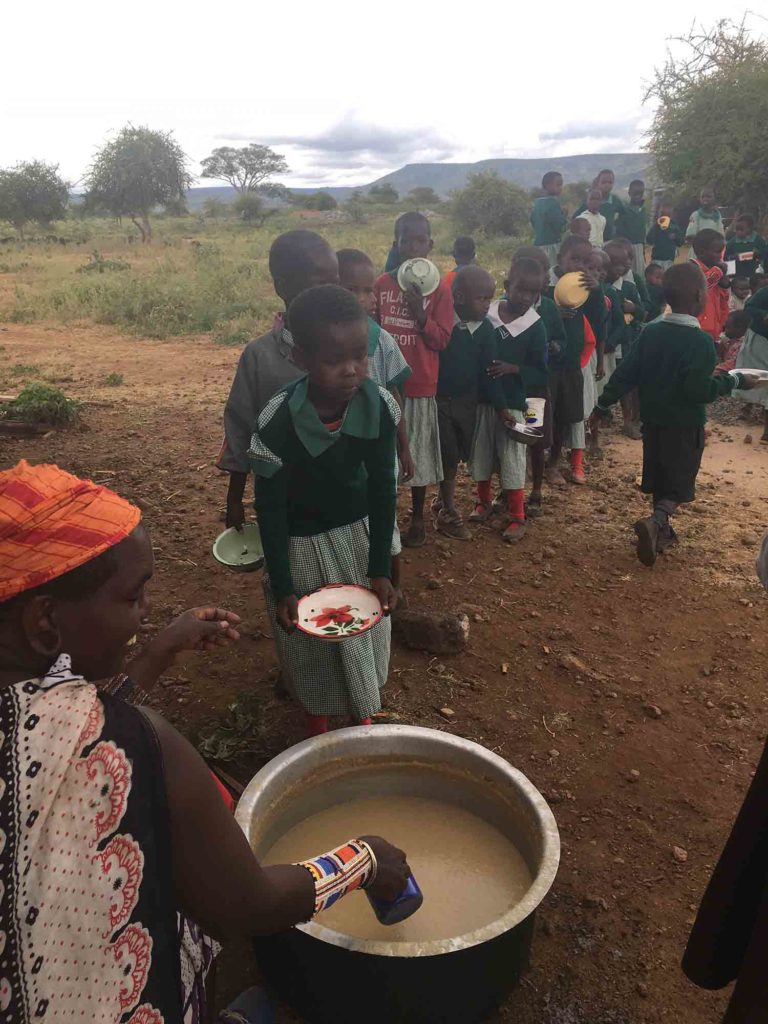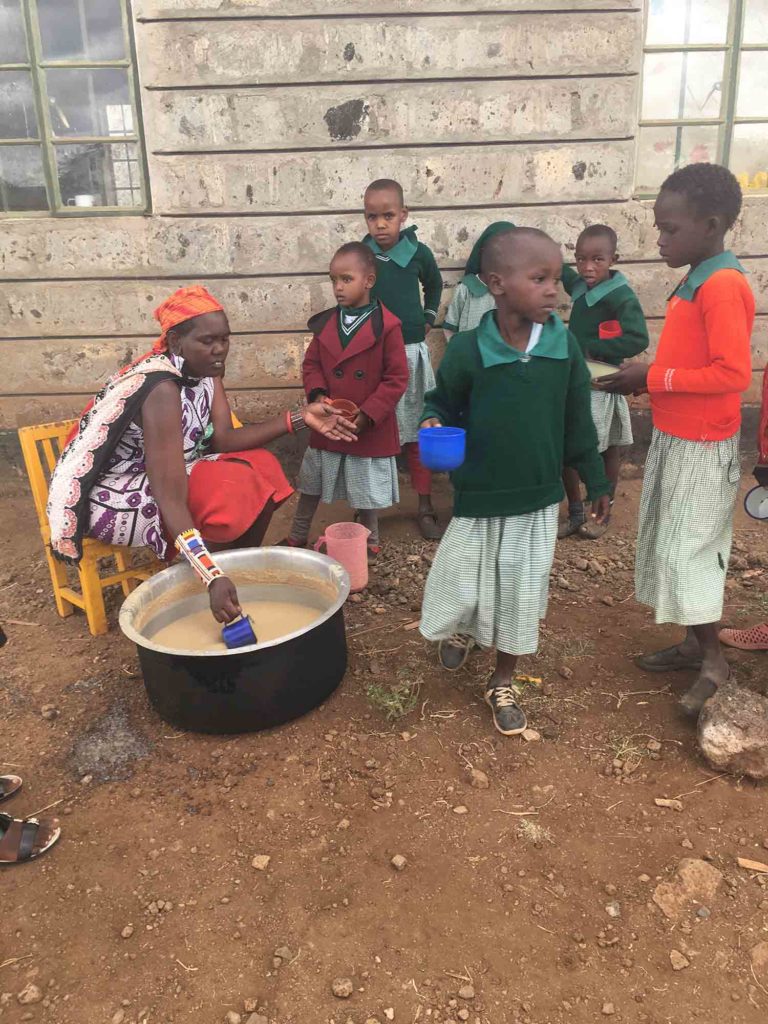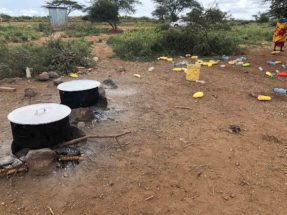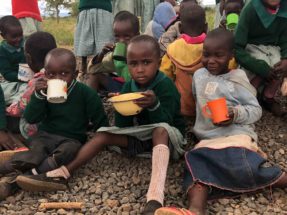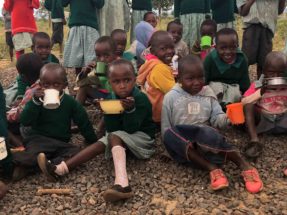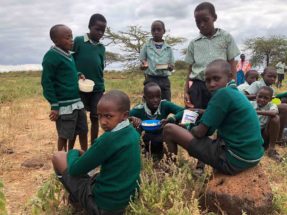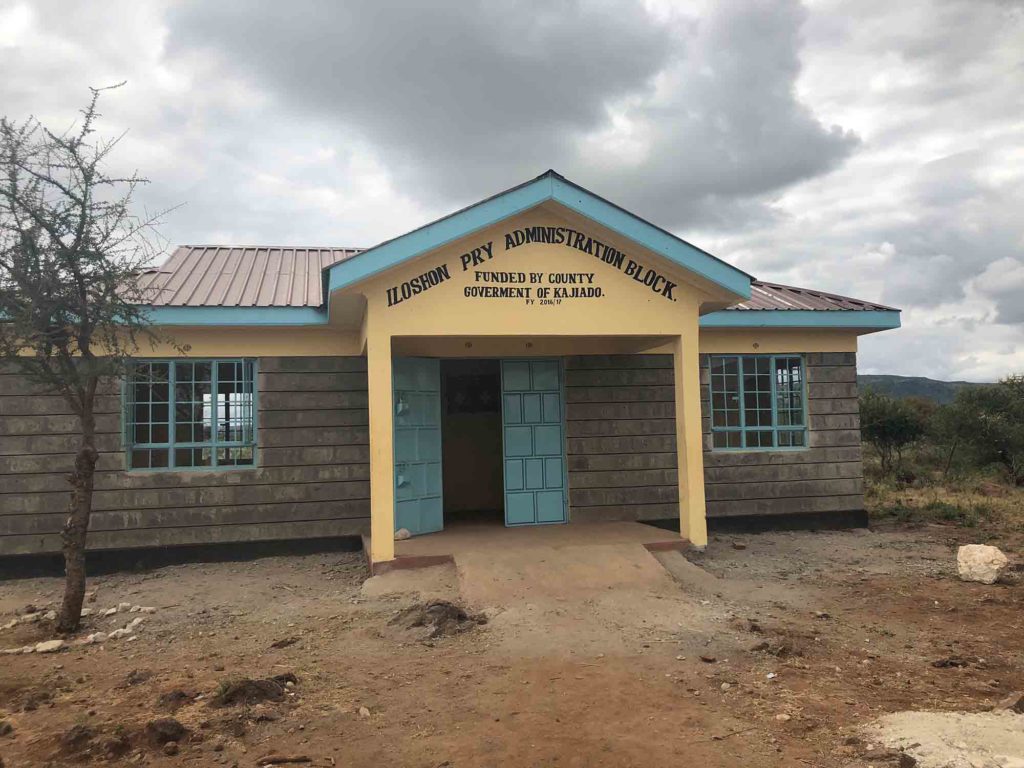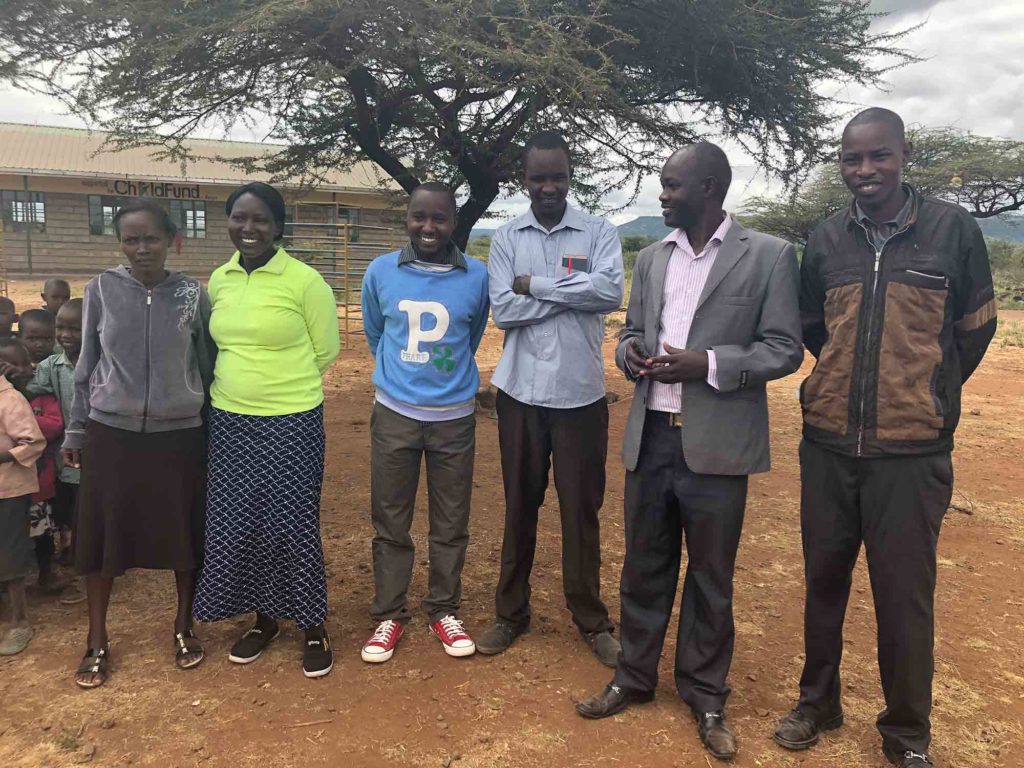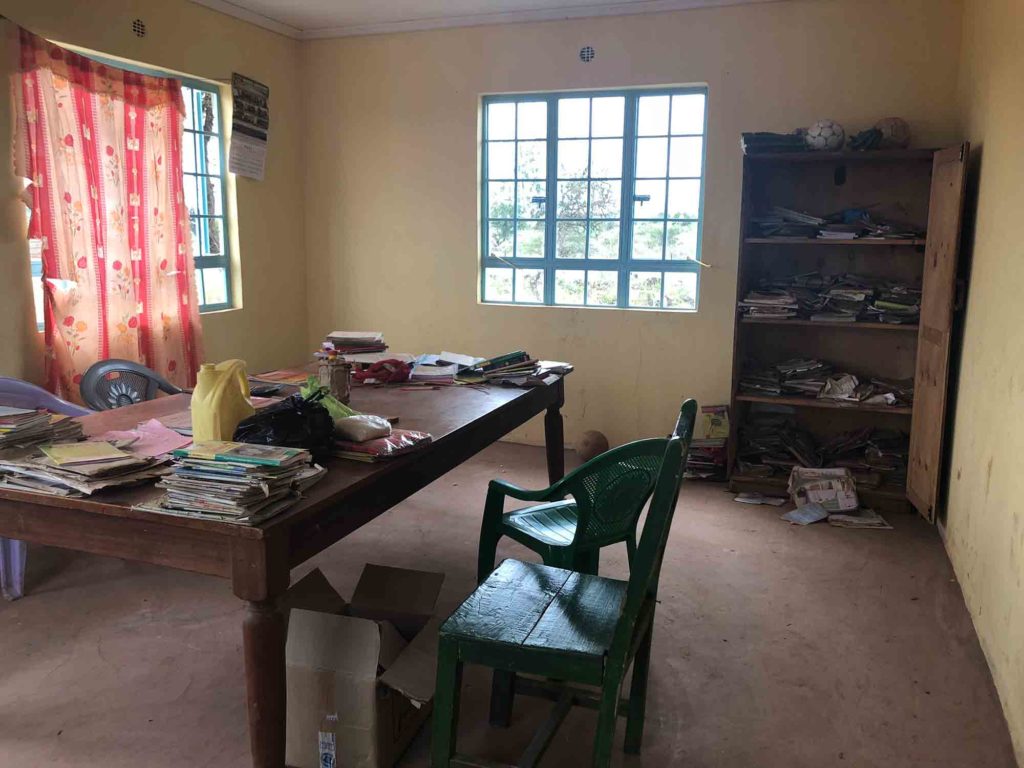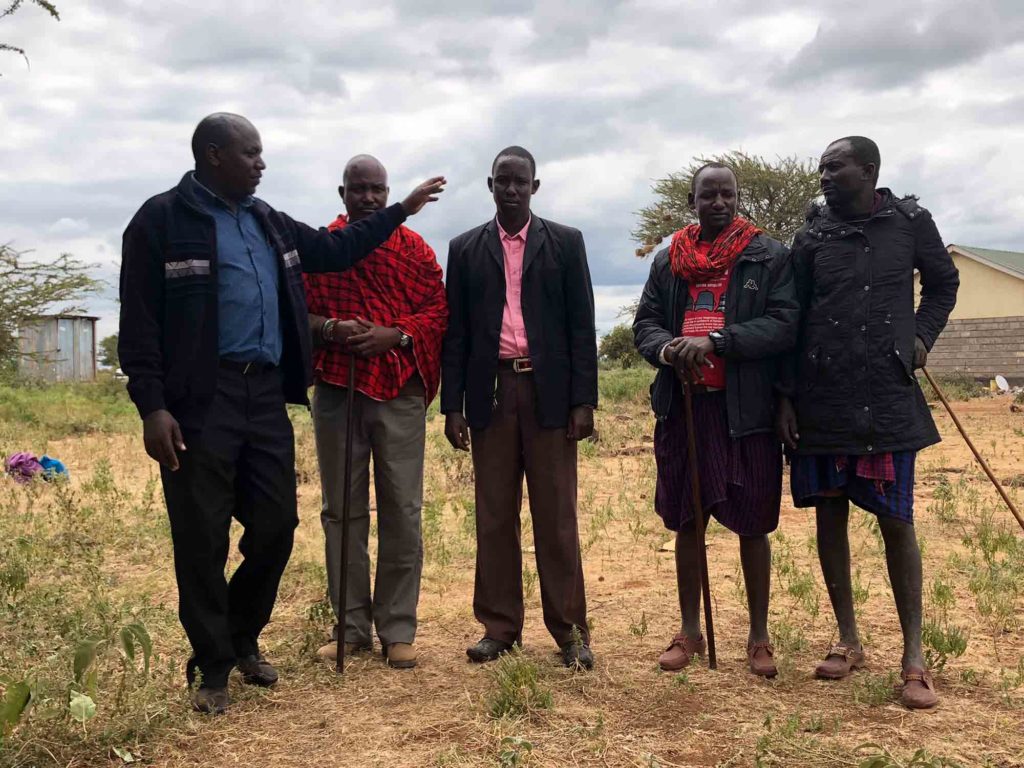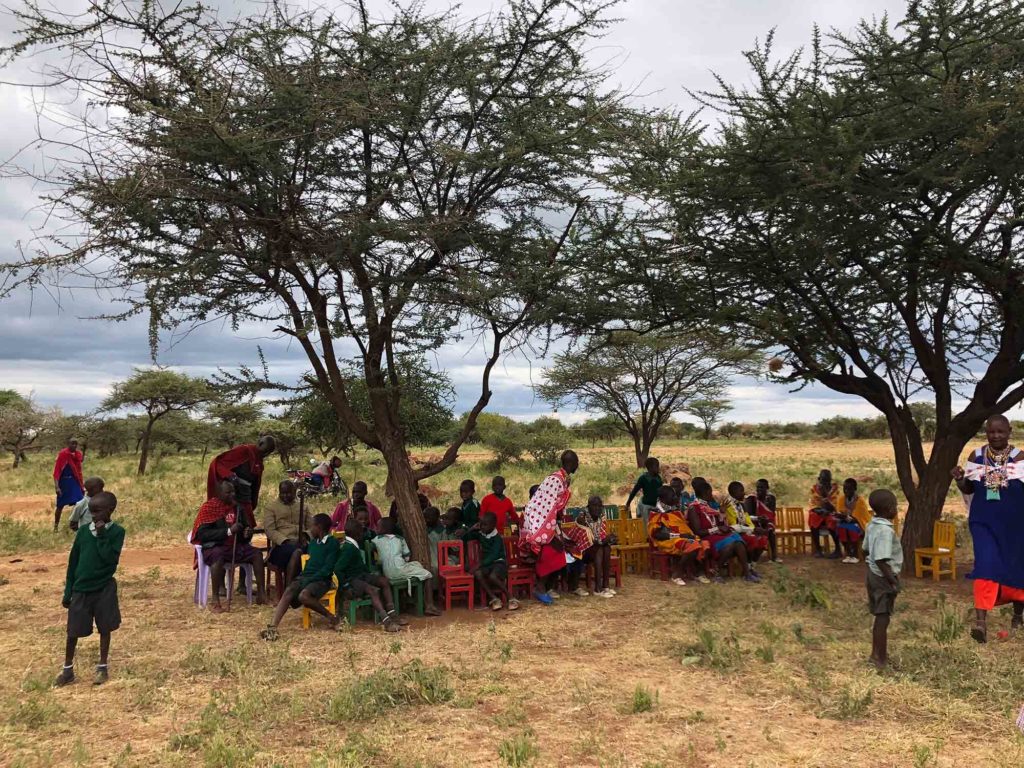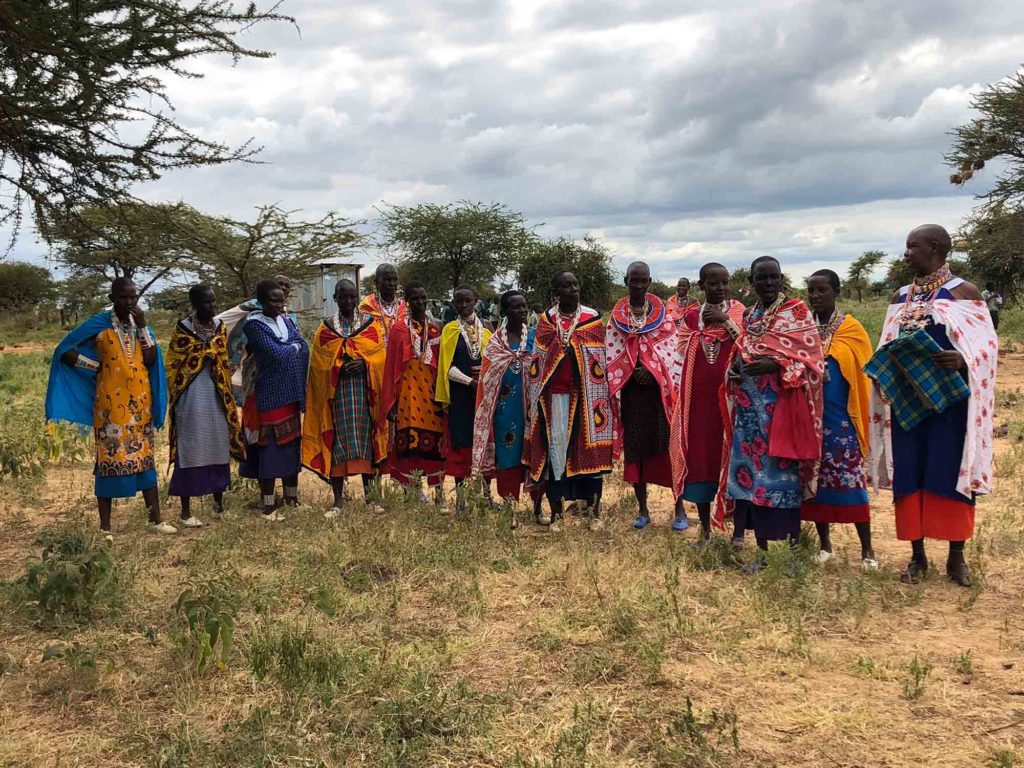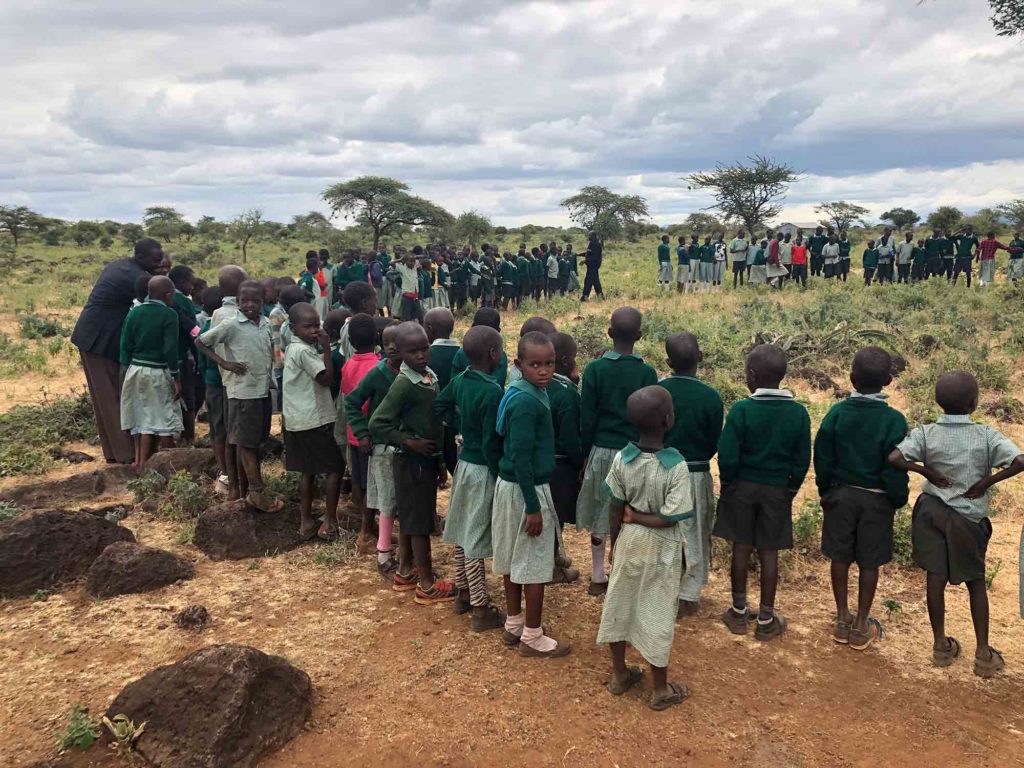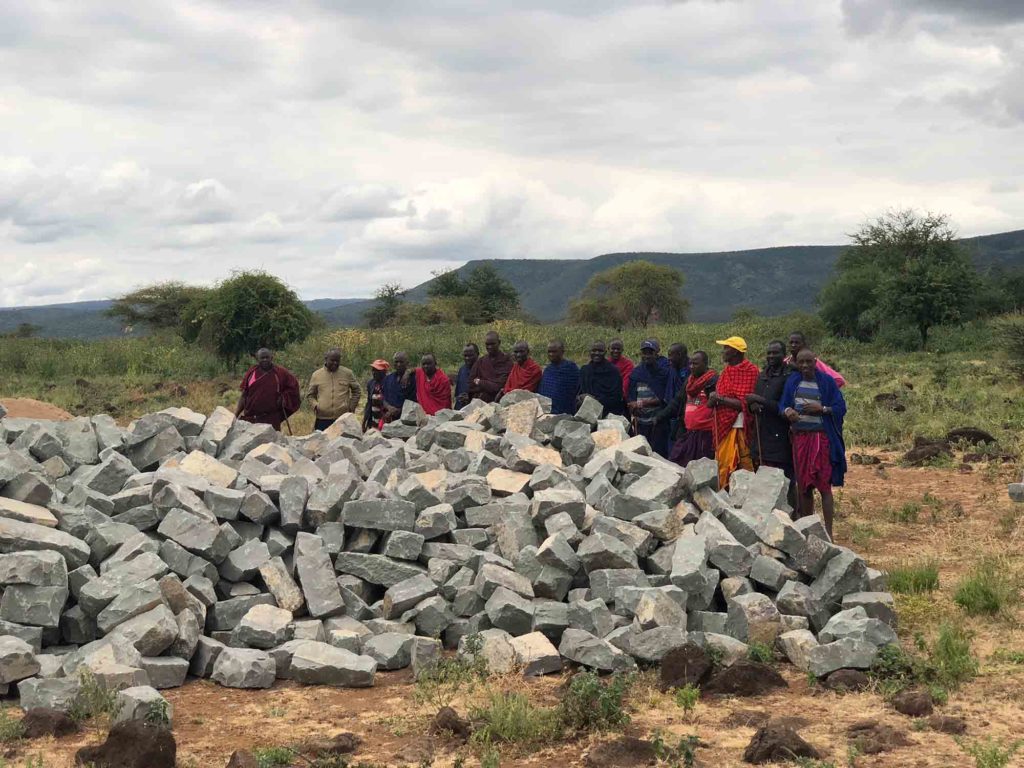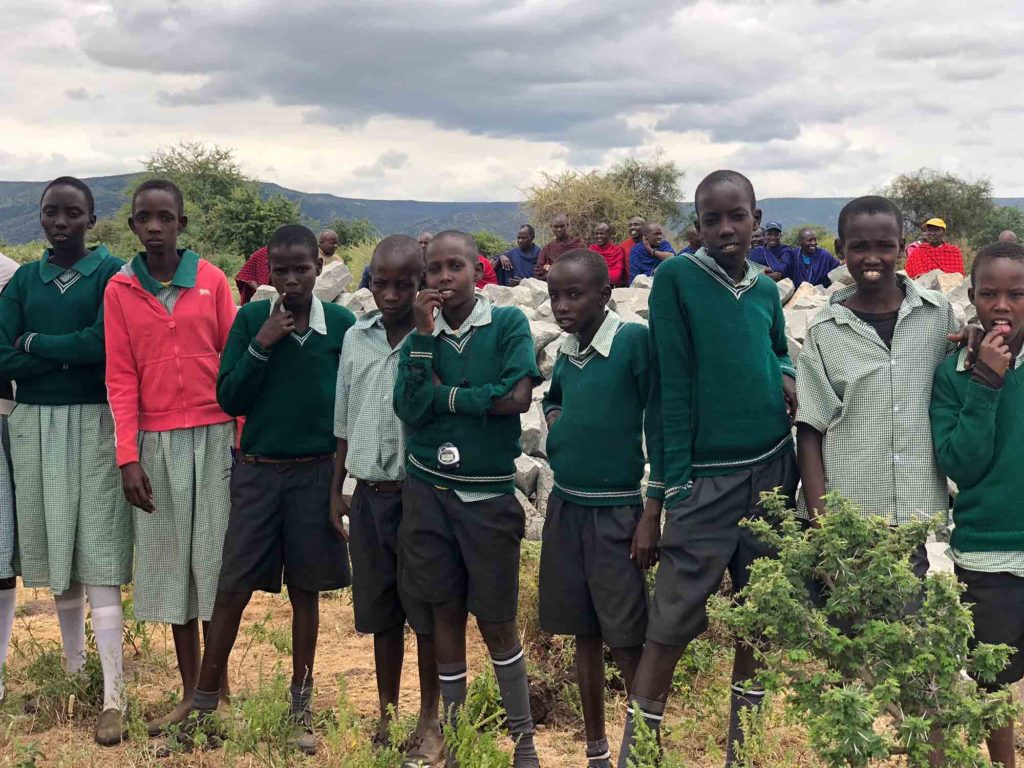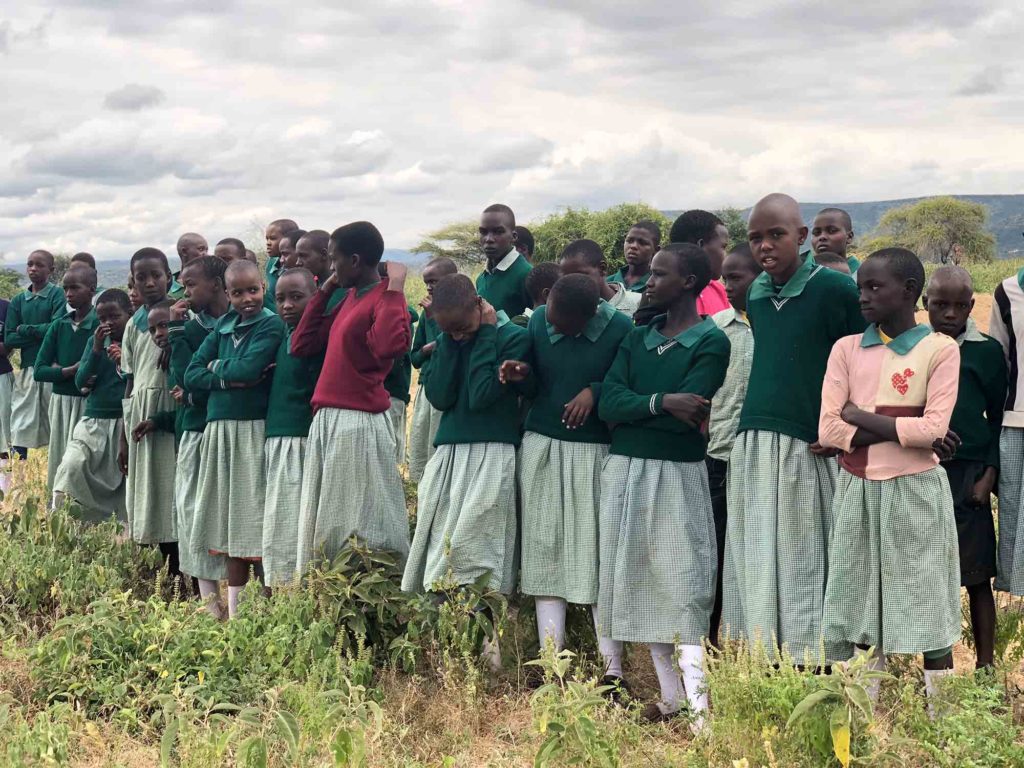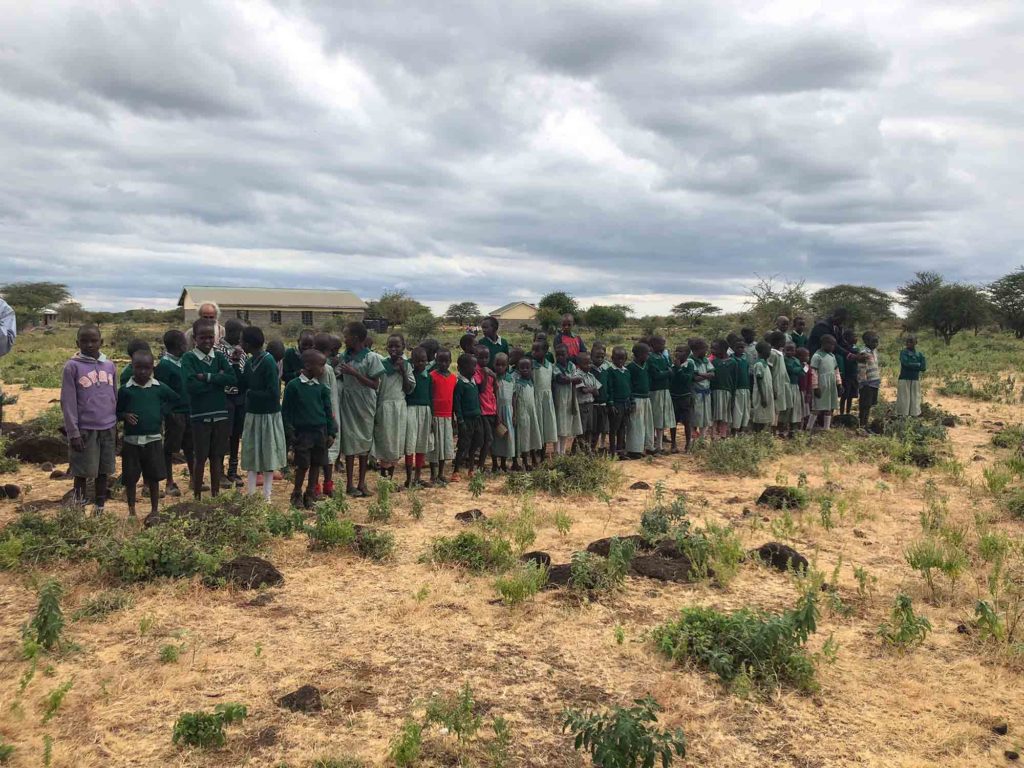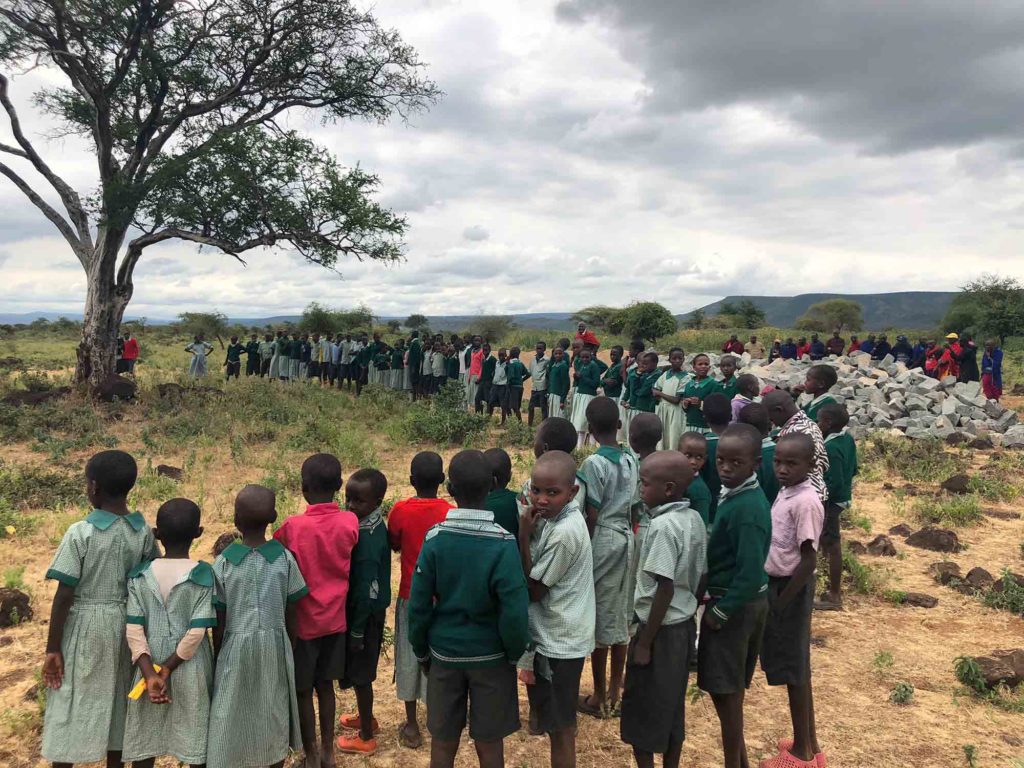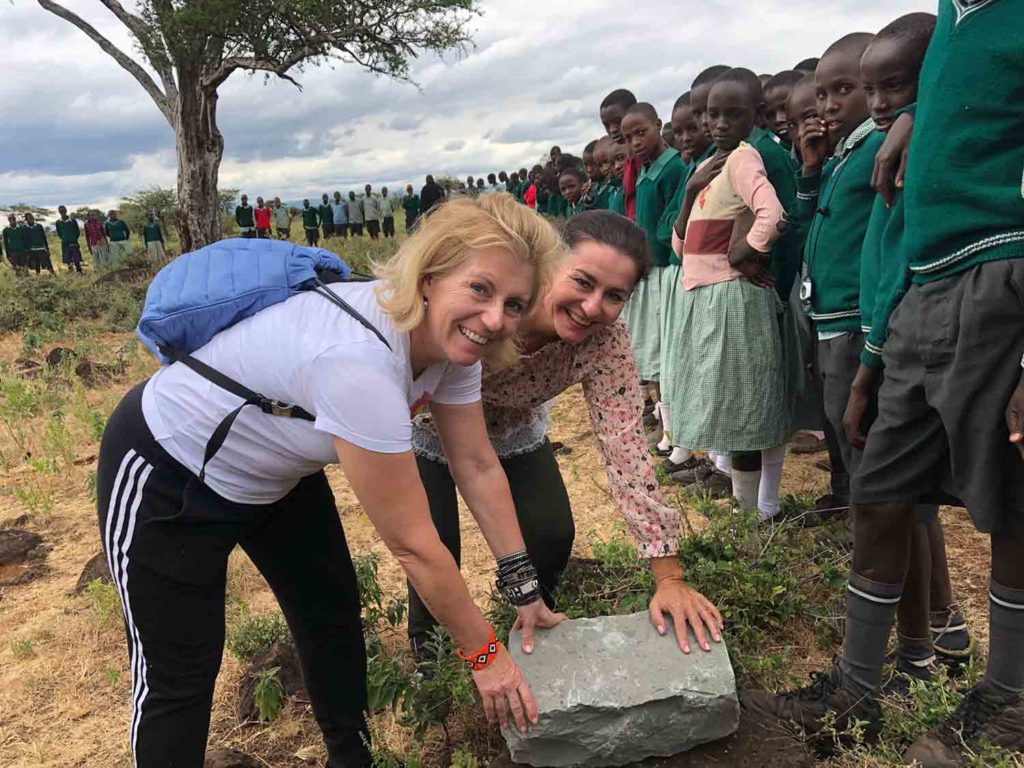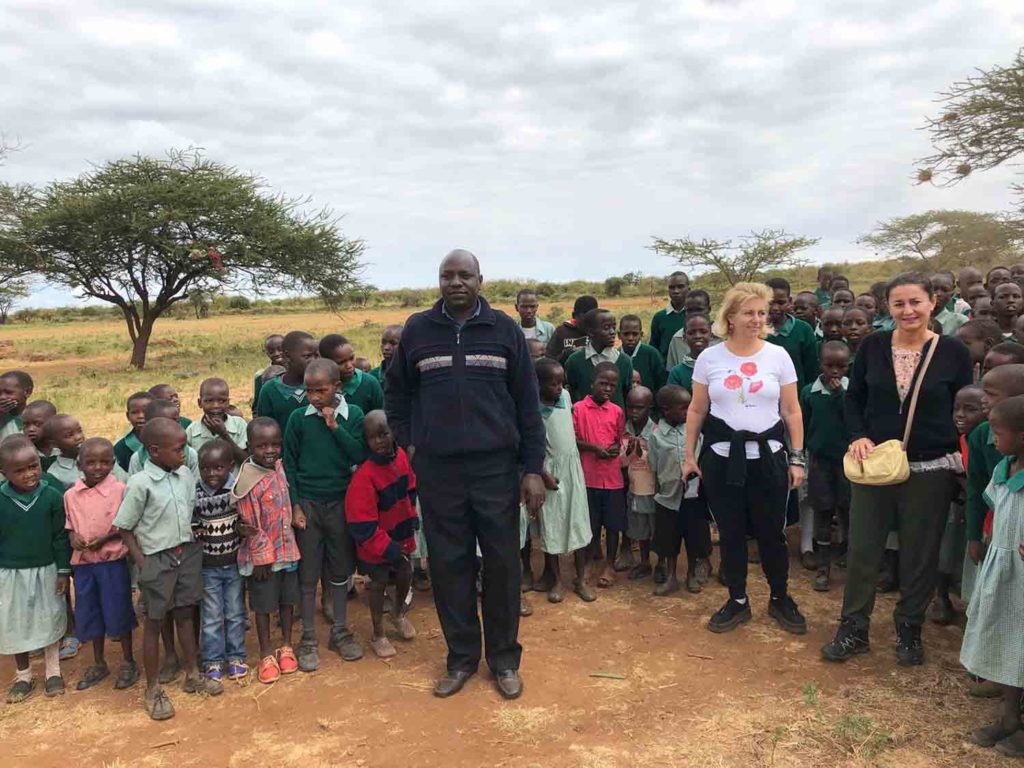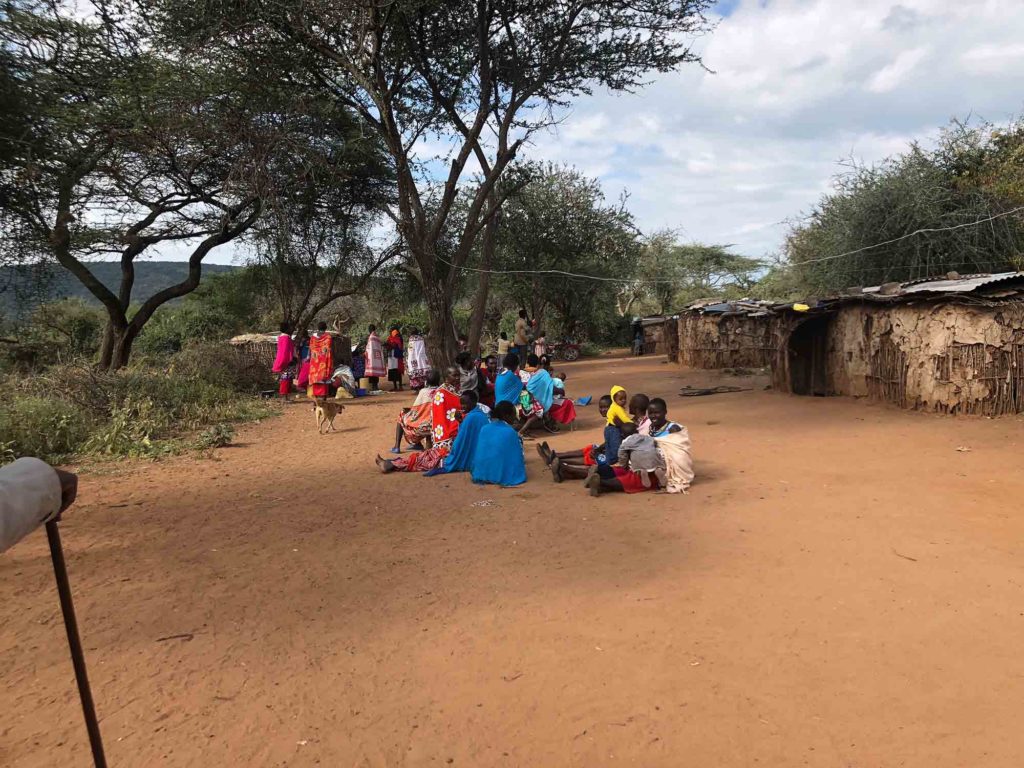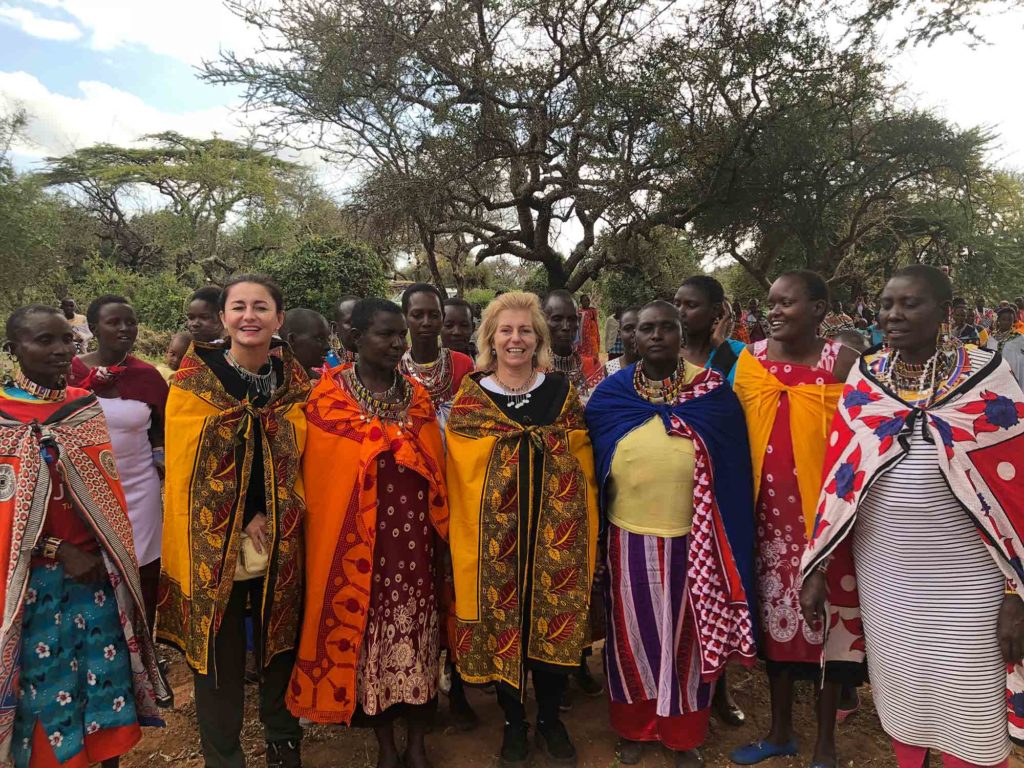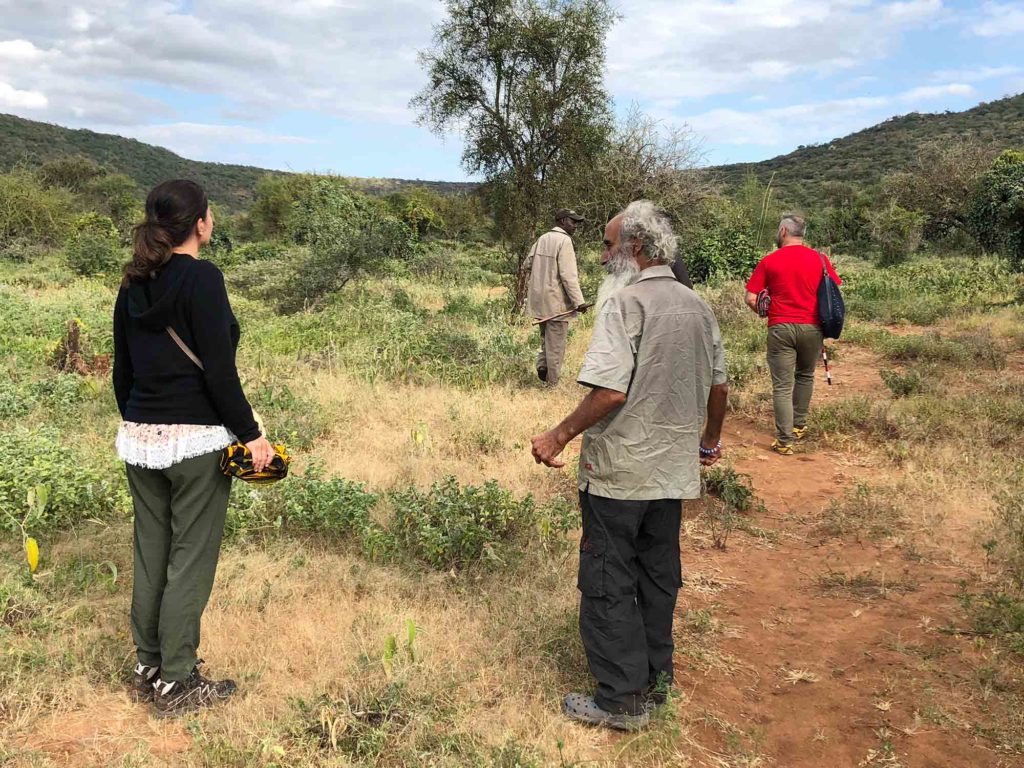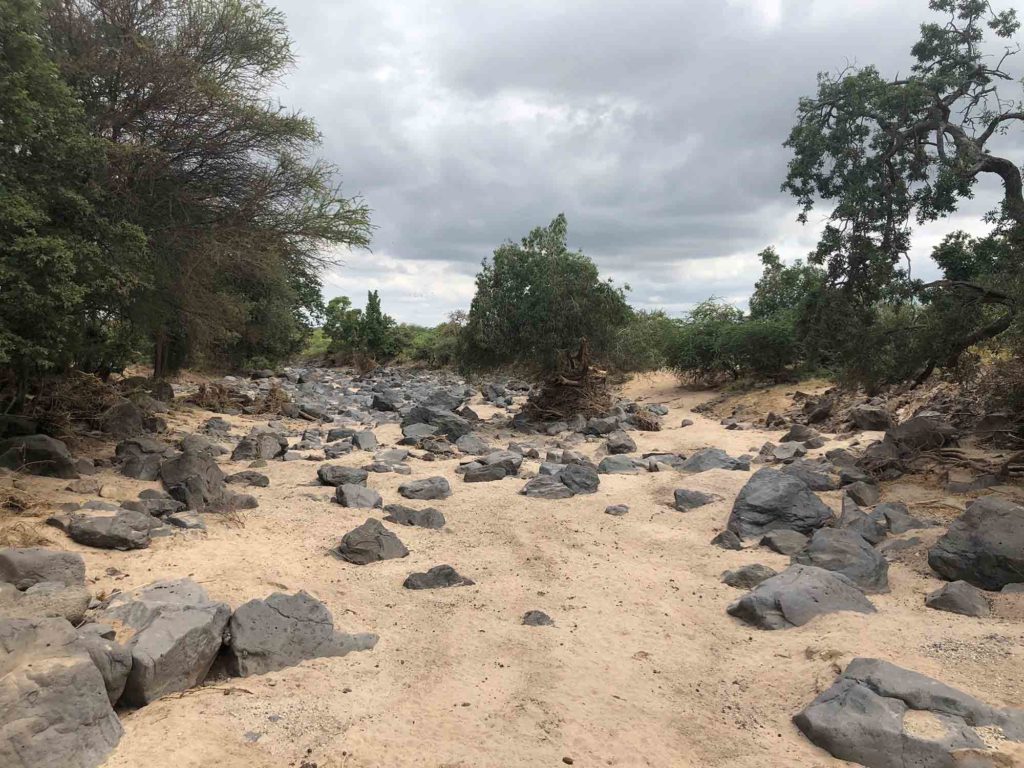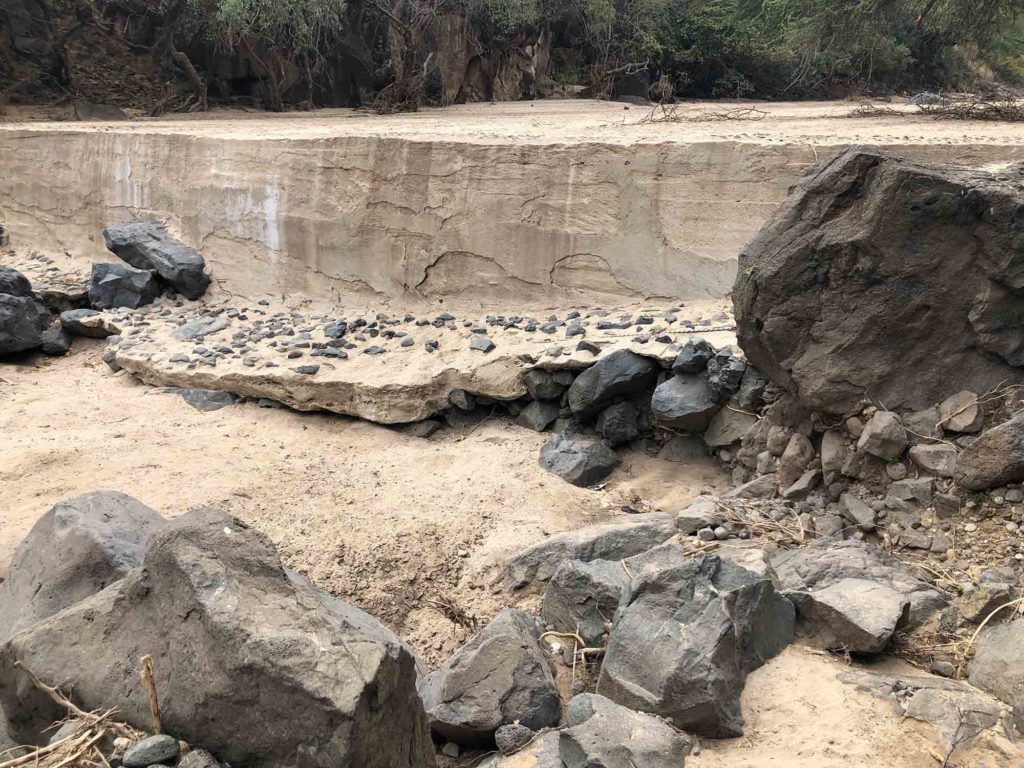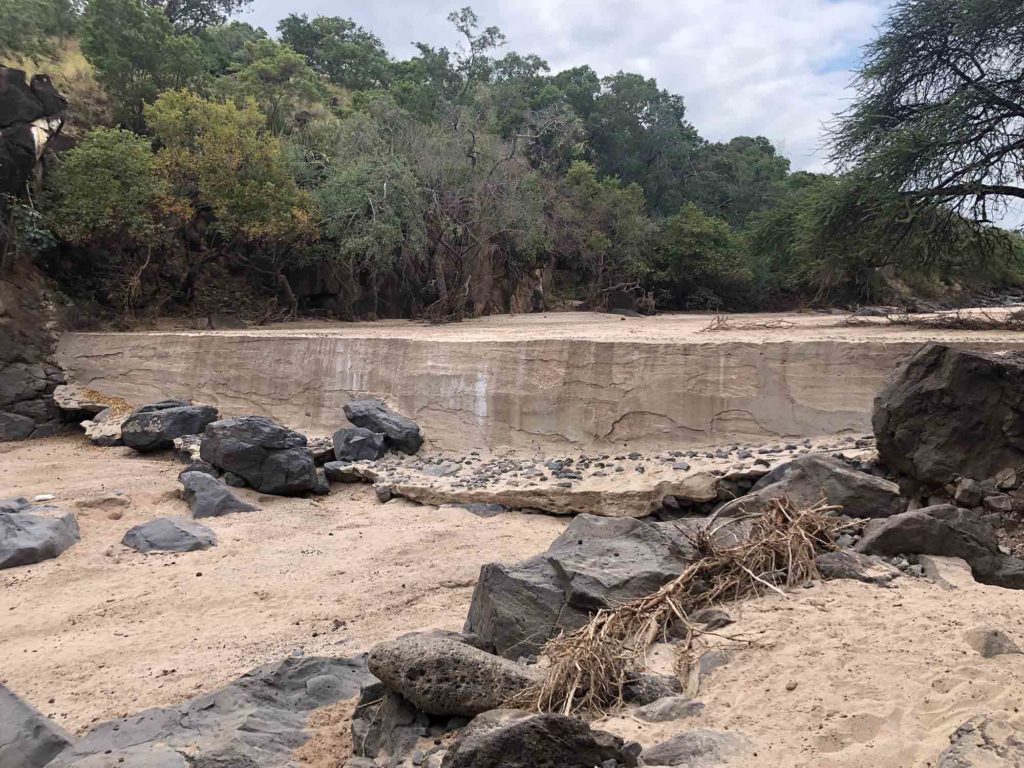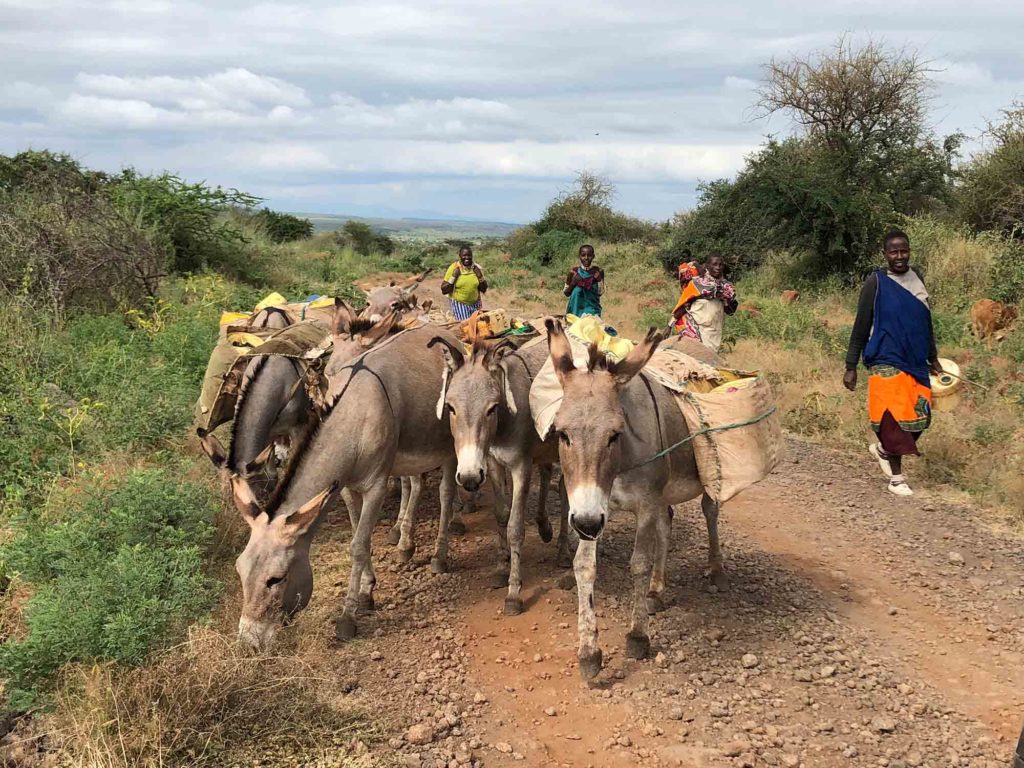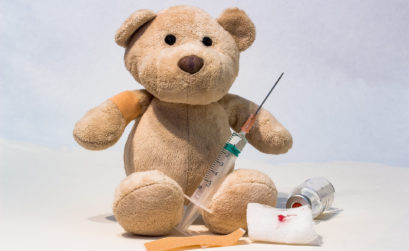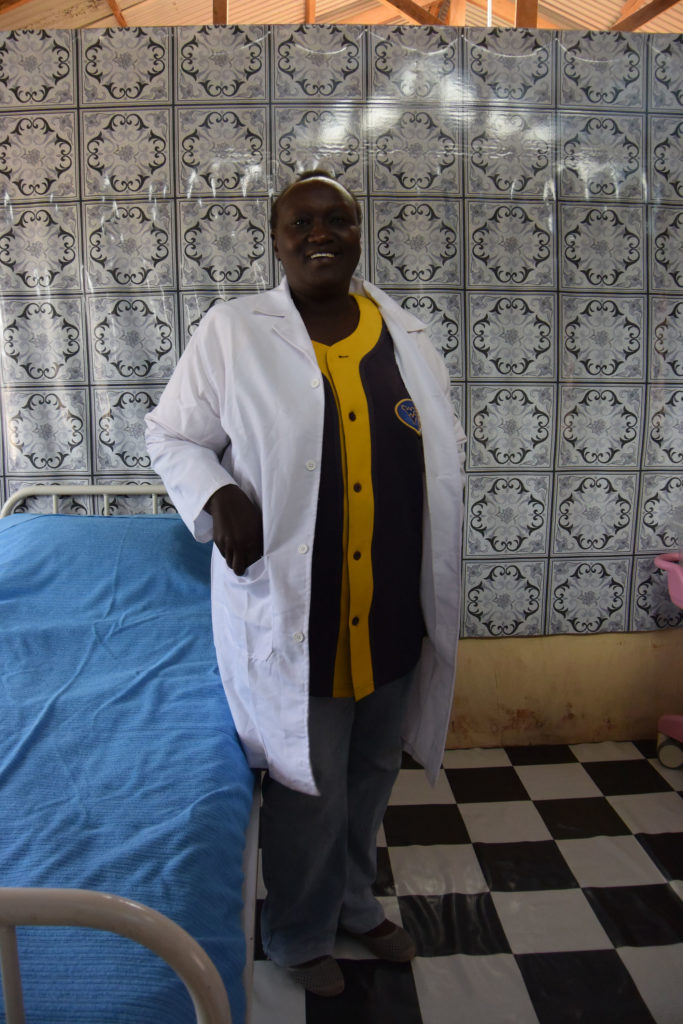Susi and Manu go to Africa – Part 2
Also this year we – Susi and Manu – decided to travel to Kenya in order to personally check on the situation there. Not only did we want to see the development of the projects with our own eyes, we were very curious about the longterm effects of our projects on the development of the villages.
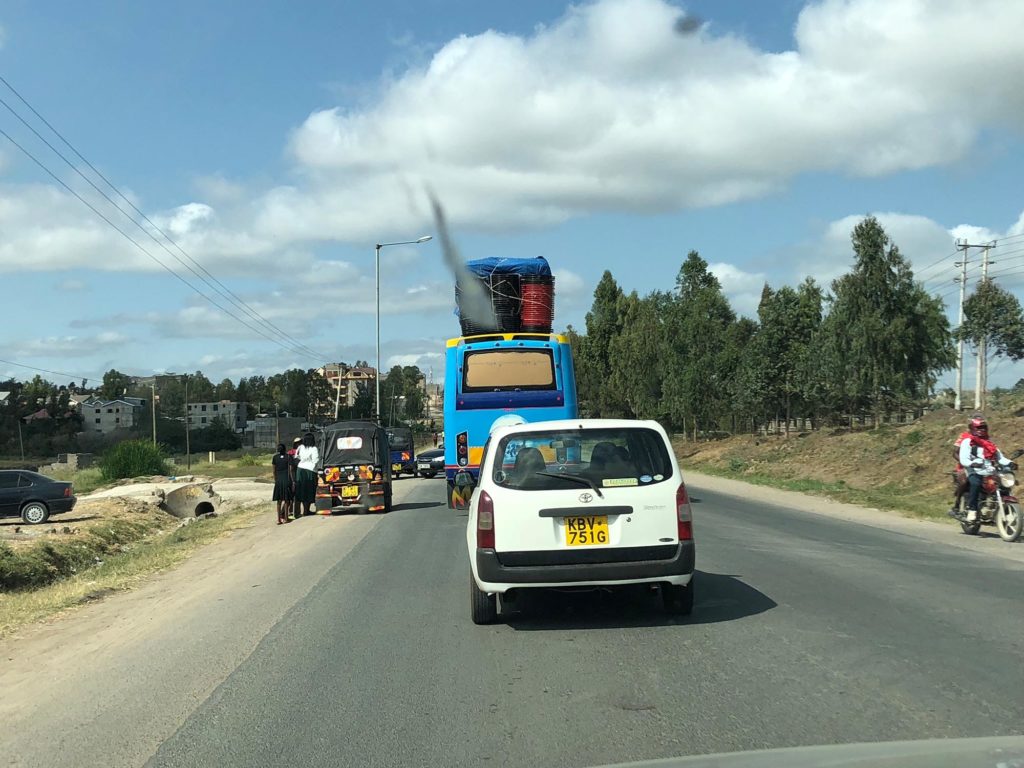
We did not really know what to expect and thus were very excited. The atmosphere in Olpirikata was very cheerful. As we arrived on a Sunday, the local population had decided to reduce the usually very long mass ceremonies, however, we could not avoid having to sit through a number of relatively long sermons given by lay priests. It was a very warm welcome.
After the opening ceremony, we headed straight off for our visit to the farm or Acacia Camp as the locals call it. The local Masai population has provided 18 ha of land for the farm project, which now includes a stable for 20 dairy cows, three greenhouses, a couple of vegetable fields, fenced grazing land for the cows, a hens’ coop with 250 chicken and 500 Aloe Vera plants. The greenhouses were necessary to protect the young and fragile vegetable plants from the strong and frequent winds in the savannah.
Upon arriving at the farm on time for the vespertine milking at 5pm, we were surprised to find a queue of people lined up with their own plastic containers to buy fresh milk. The plastic containers faintly reminded us of laundry detergent containers. The people had formed a proper line and were waiting patiently until it was their turn.
- Ms. Starbuck’s Olpirikata
John Sawa Tuwei is responsible for the farm and is also in charge of the other 6 men and 3 women who are employeed at the farm. The men take care of the cows, ie. they feed, nurture and milk them, and also manage the sale of the milk. They also take care of the fields and the greenhouse and are greatly supported by Antonio, a collaborator of La Nostra Africa who lives in Olpirikata permanently. The three women take care of the hens’ coop and sell the eggs.
- John and his team
Generally speaking, the atmosphere in Olpirikata is very good – thanks to our well project, the village has been spared from last year’s drought and they have enough water for the population as well as for the cattle. The fact that fresh milk can now be easily bought at any time is perceived as a miracle. You can see children waving happily with their milk containers and the local shop owner was able to increase business by selling Chai (sugared tea with hot milk), which has turned her shop into the local Starbuck’s of Olpirikata.
On this trip, we stayed overnight in Olpirikata for the first time, that is to say, we slept in one of the rooms of the Massai Mama Africa Center. We were fed well and enjoyed tomatoes, eggs and milk from the farm. Since Giorgio also wants to teach the Massai how to make cheese, he brought a lab-ferment from Italy for the first trial with local milk. After adding the lab-ferment to the milk, he let it rest for 24 hours and then made the cheese. We got to be the guinea pigs for this first cheese production and we survived!
- In the kitchen of the MMAC
- Handover of patterns
- Pizza in the savannah
The following day we travelled to Iloshion to participate in the celebrations of the first stone laying for the Nasaru Learning Center for Massai Girls. Iloshion suffered a terrible drought last year and people there are worse off than those in Olpirikata. Nevertheless, they provided us with a very friendly and warm welcome with children forming a guard of honor for us. It was very emotional!
We then had the opportunity to observe the children at break time at the local elementary school:
All children bring a little bit of milk in a plastic container to school. This milk is then poured into a huge pot where the women prepare the porridge as a snack for the break. At break time, the kids make a line in front of the pot and everybody gets a portion.
- Empty milk cans
Then we visited the new administration building of Iloshion and interviewed and photographed numerous children and adults.
- Teacher team of Iloshion
- Teachers’ room
After a typical Massai ceremony with lots of speeches and gifts, the whole assembly was directed towards the future construction site for the Nasaru Learning Center.
It was a very big group walking through the savannah as a rather big number of parents had arrived especially for the celebration. The teachers told the children to form a line along the floor space of the future building. This was very impressive as this way one could imagine the dimensions of the future building complex. Symbolically we laid the first stone and then distributed some sweets to the children. A touching moment we had been looking forward to for a very long time!
Our next stop was the Boma complex of a family in Olpirikata. We were invited to discuss a potential future project. The family would be willing to provide land for this project which is still in the planning stage. Although we, as two women, were treated with a little bit of suspicion, we were once again given a very warm welcome.
Our dinner consisted of pizza prepared by Antonio with homemade cheese and tomatoes from the farm! As we were a little scared of potential bacteria, we washed it down with a little bit of gin – strictly as a safety measurement! The nocturnal way to the bathrooms proved to be an adventure which definitely will have a positive impact on Susi’s and Manu’s friendship. Experiences like this are bonding and will never be forgotten. Generally speaking on trips like this one, bodily functions turn into very repetitive and interesting topics!
Next on our list was a visit to Singiraine. This is a village with a population of about 2,000 and does not have any water even though there is a river bed right next to it. Singiraine unfortunately is proof of the German saying, “the opposite of “well done” is very often “well meant”. Actually, another NGO intended to build a dam but unfortunately the project was abandoned before termination and thus the population is still without water. The people, ie the women of Singiraine, have to walk 10 km and more to fetch water! Giorgio from La Nostra Africa is working on the evaluation of a project – in close cooperation with an Italian university – to finish the dam.
- Women fetching water
After a long and very tiring journey back to Nairobi, we went to see furniture to find inspiration for our next project. Information about this project will follow soon…. And then our short but very intensive visit had come to an end. We left Kenya full of new impressions and ideas and know one thing for sure: We will be back!

